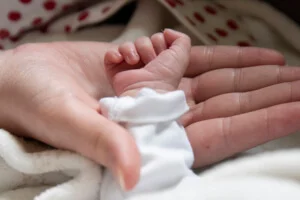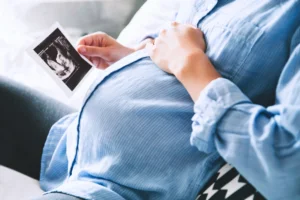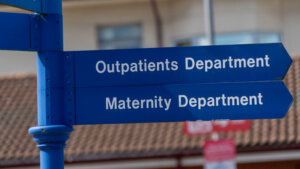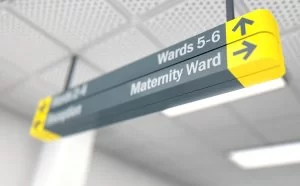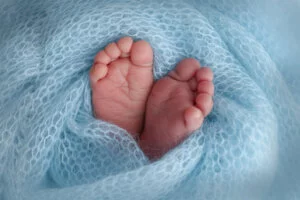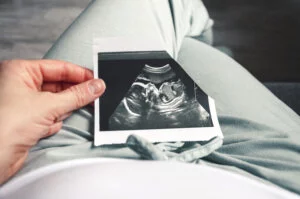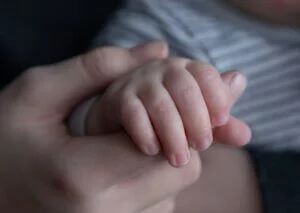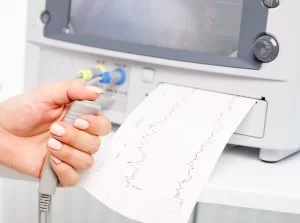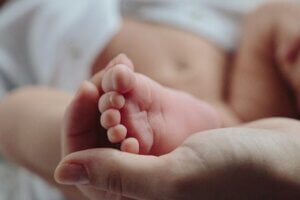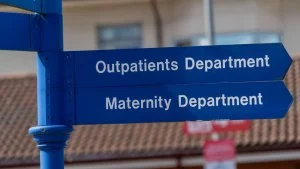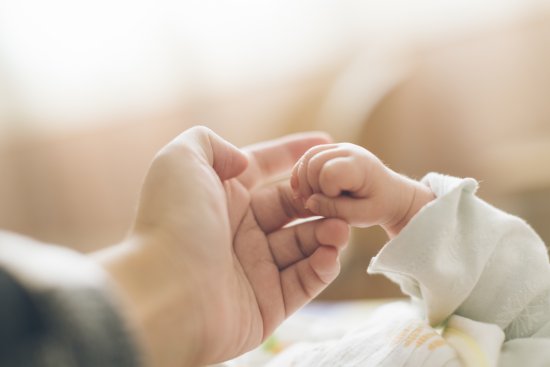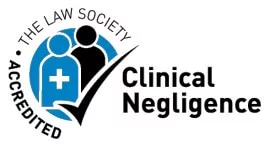Ectopic Pregnancy Claims
Ectopic Pregnancy Compensation Claims Lawyers
If you have suffered due to a delayed diagnosis of ectopic pregnancy, you may be entitled to claim compensation.
“Osbornes handles a wide range of high-value and complex clinical negligence cases, with particular expertise in birth injury, delayed cancer diagnosis, spinal injury, and fatal claims.”
“Osbornes Law is an established firm which handles a breadth of complex and high-value clinical negligence matters.”
Understanding Ectopic Pregnancy Compensation Claims
Ectopic pregnancies can be life-threatening if not diagnosed and treated quickly. For some women, a missed diagnosis not only endangers their health, it can also take away their ability to conceive naturally in the future.
Around 11,000 ectopic pregnancies occur in the UK each year, yet warning signs, such as severe abdominal pain and shoulder tip pain, are still too often overlooked. When medical professionals fail to identify these symptoms, the consequences can be devastating. At Osbornes Law, we represent clients who have suffered as a result of negligent care, including delays in recognising the signs of an ectopic pregnancy.
Common scenarios in negligent ectopic pregnancy cases
- Failure to recognise classic symptoms – dismissing or misinterpreting severe abdominal pain, vaginal bleeding, and shoulder tip pain as normal pregnancy symptoms or other conditions
- Inadequate or delayed diagnostic testing – Not ordering timely trans-vaginal ultrasounds (TVUS) or serum beta-hCG levels when symptoms clearly indicate potential ectopic pregnancy
- Misinterpretation of test results – Failing to properly analyse rising hCG levels alongside ultrasound findings, leading to delayed diagnosis and treatment
- Inappropriate discharge from emergency departments – Sending patients home despite presenting with dizziness, fainting, or severe pelvic pain without proper investigation
- Delayed surgical intervention – Failing to recognise when methotrexate treatment is inappropriate or when emergency surgery is required for rupture
Can I claim compensation for a missed or delayed ectopic pregnancy diagnosis?
If doctors fail to diagnose or properly manage an ectopic pregnancy, you may be able to bring a medical negligence claim. An ectopic pregnancy claim arises when healthcare professionals do not meet the expected standard of care, whether by overlooking symptoms, misinterpreting test results, or delaying vital treatment.
To succeed in a claim, we need to show three things:
- The healthcare provider owed you a duty of care
- That duty was breached through negligent care
- You suffered harm as a direct result
Compensation can help cover a range of losses, including physical injuries, emotional distress, fertility complications, and ongoing medical expenses. It’s important to act quickly—there is generally a three-year time limit from the date of the incident or when you first realised something went wrong. If you believe your ectopic pregnancy was mismanaged, our specialist solicitors can help you understand your rights and pursue a claim.
How much can I claim for ectopic pregnancy negligence?
If you’ve suffered due to a missed or delayed diagnosis of ectopic pregnancy, compensation can help you with the physical and emotional impact, as well as the financial losses you’ve experienced. There are two main types of compensation available:
General Damages. These cover the pain, suffering, and loss of quality of life caused by medical negligence. In ectopic pregnancy claims, this may include:
- Physical pain and trauma
- Psychological injury, including anxiety and depression
- Loss of fertility
- Ongoing mental health effects such as fear of future pregnancies
Special Damages These are financial losses linked directly to your injury. They may include:
- Private medical treatment and rehabilitation
- Fertility treatment, such as IVF
- Lost earnings due to time off work
- Travel and childcare expenses
- Prescription costs and counselling fees.
We prepare a detailed assessment of your financial losses to ensure your claim fully reflects both past expenses and future care needs.
Real world example
A 27-year-old woman, was admitted to Walsall Manor Hospital with an ectopic pregnancy and scheduled to have her right fallopian tube removed. However, in a devastating surgical error, doctors mistakenly removed her left fallopian tube. It wasn’t until a week later that the mistake was discovered, and the woman had to undergo a second operation to remove the correct tube. As a result, she lost both fallopian tubes and can no longer conceive naturally. Her only option for having children in the future is through IVF.
How do I make an ectopic pregnancy claim?
Ectopic pregnancy claims can be complicated and challenging, so it is vital to consult with a specialist solicitor to guide you through the process effectively.
1. Contact our specialist medical negligence lawyers.
We’ll meet you face-to-face before taking the case on. The appointment can take place at your home, in hospital or at our offices, whatever is best for you. We will assess your case and advise whether you have a valid injury claim.
2. Decide to work with us.
Following our meeting, we’ll advise you about the prospects of success, the potential value of your claim, and how long it will take. If we all agree that Osbornes Law should take your case on, we will discuss the funding of your claim, including whether to run your claim under a No Win No Fee agreement.
You’ll have direct access to a dedicated case worker throughout your case. They will keep you informed of the progress of your claim and consult you about all decisions relating to your case.
3. Investigate the claim
To help us prepare your claim, we’ll obtain a full set of your medical records and review them in detail. We will also take a detailed record of your version of events and check this against your medical records. Sometimes, there are discrepancies between your account and the medical records, which we need to know about when preparing your case.
4. Independent medical reports
To help prove that negligence occurred, we may consult with a medical professional who can provide an expert opinion on whether the injury was a result of medical negligence or an unavoidable complication. They will conduct a physical examination and prepare a medical report giving their opinion about the injuries to the mother or baby and what treatment should (or should not) have been given.
The medical report helps us to establish a link between substandard medical care and subsequent injuries. It’s important that the medical assessment fully reflects the injuries so we can negotiate the settlement figure you deserve.
5. Letter of claim
We’ll write to the healthcare provider that treated you, telling them that you’re taking legal action – this could be your GP or the local NHS Trust. While the Letter of Claim is not an official court document, it outlines your allegations and requests compensation. The NHS Trust has 14 days to acknowledge receipt of the letter and four months to conduct their own investigations and respond. At this point, we find out if the healthcare provider admits liability or disputes the claim.
6. Negotiate a settlement
If the healthcare provider accepts liability, we can start negotiating a settlement based on what we think you’re entitled to. The amount will reflect the type and severity of your injuries. We can also apply for an Interim Payment if you need urgent funds or medical care before the settlement is agreed upon.
7. Issue court proceedings
If the healthcare provider denies liability or we can’t agree on a suitable settlement, we may need to start court proceedings. As a first step, the Court will set a timetable for the various stages of the litigation. This can stretch over many months, so we keep negotiating with the other side and try to reach an agreement before a court hearing is necessary. We may arrange mediation or some form of alternative dispute resolution at any point of the claim, as this can often lead to a faster, more amicable outcome and help keep costs down.
8. Settlement or court decision
Only a very small percentage of ectopic pregnancy claims go to trial. If yours does, then a judge will decide on the outcome after hearing evidence from both sides. You will receive compensation for your injuries, financial losses, and legal costs if successful. If unsuccessful, you may not receive compensation and may have to pay the defendant’s legal costs.
Why choose Osbornes Law?
Ectopic pregnancy claims can be complex, but having experienced solicitors on your side can make a difference. For over 50 years, our firm has specialised in complex medical negligence claims, focusing on achieving life-changing compensation awards for our clients and their families.
We are widely recognised as being at the top of our profession, achieving consistent top rankings by The Legal 500 and Chambers and Partners for our reputation as specialists in this field.
We work primarily on a No Win, No Fee basis, which makes it easier for everyone to pursue their rights. If your claim is successful, we will deduct our fee from the compensation you receive at the end of your claim.
Ectopic Pregnancy FAQs
How do I know if I have a valid ectopic pregnancy claim?
You may have a claim if your symptoms were not acted upon, there was a delay in diagnosis or treatment, or you were discharged without proper investigation.
How long do I have to make an ectopic pregnancy compensation claim?
In most cases, you have three years from the date of injury or when you became aware that negligence occurred. For children or those lacking mental capacity, different rules may apply.
Do I need a specialist solicitor for an ectopic pregnancy claim?
Yes. Ectopic pregnancy claims involve complex medical and legal issues. A specialist medical negligence solicitor will understand how to gather evidence and present your case effectively.
Speak to an Ectopic Pregnancy Solicitor
Call us 020 7485 8811
Email us Send us an email and we’ll get back to you
Elline Demetriou is building a strong practice as a clinical negligence solicitor, handling a wide variety of cases including delayed diagnosis, surgical negligence and birth injuries.
The team has particular expertise in cases stemming from delays in diagnosis as well as surgical injury and wrongful birth claims.
Osbornes handles a wide range of high-value and complex clinical negligence cases, with particular expertise in birth injury, delayed cancer diagnosis, spinal injury, and fatal claims.
Jodi Newton holds over 20 years of experience in birth and surgical injury cases, including those pertaining to cerebral palsy, negligent treatment of sepsis, and negligent A&E treatment.
Practice head Stephanie Prior is noted for her expertise in birth injury litigation, including cases resulting in serious cognitive injuries.
The team handles a host of complex maternal claims, including cognitive injuries as a result of delayed birth treatments, cerebral palsy, and vaginal mesh litigation.
Stephanie Prior is head of the clinical negligence department at Osbornes Law. She acts on a wide range of issues, including claims for brain injuries sustained at birth and delays in diagnosis. She frequently represents clients in fatal claims involving surgical error.
"Stephanie Prior is the leading spokesperson on the high profile maternity scandal cases involving many NHS Trusts."
Stephanie has developed a particularly strong reputation for her handling of birth injury claims, as well as cases concerning surgical negligence and delays in surgery.
Client Stories & InsightsVIEW ALL
- 3.12.2025
Liability Secured for Child with Cerebral Palsy
Full admissions of liability secured on behalf of child with quadriplegic cerebral palsy Jodi Newton, Partner in our Medical Negligence...
Read more - 28.10.2025
Liability Settlement Secured in High Court Wrongful Birth...
Supporting Ellie’s future: High Court settlement in wrongful birth case Nicholas Leahy, Senior Associate in the Medical Negligence team...
Read more - 27.8.2025
HSSIB Review Exposes NHS Maternity Failures
Patient safety body HSSIB publishes exploratory review of maternity and neonatal services As Head of Paediatric and Birth Negligence cases...
Read more - 26.8.2025
Scandal-Hit NHS Trust Pays Over Avoidable Stillbirth
Scandal-hit hospital at centre of national probe agrees five-figure payout over ‘avoidable’ failings that led to stillbirth of baby girl...
Read more - 6.5.2025
Six-Figure Settlement for Negligent C-Section Delivery
Osbornes secures a six-figure settlement following a negligent caesarean section delivery Jodi Newton, Partner and head of our Obstetric and...
Read more - 14.10.2024
Multi-Million Settlement in Cerebral Palsy Negligence Case
Judge awards multi-million settlement in cerebral palsy medical negligence claim Jodi Newton, Partner and specialist medical negligence lawyer at Osbornes...
Read more - 19.9.2024
Report highlights failings in maternity care
The Care Quality Commission (CQC) has recently carried out a national review of 131 maternity inspections between 2022 and 2024, finding that failures...
Read more - 28.6.2024
£55,000 Settlement for Stillbirth Claim Against Chelsea and Westminster...
Successful Settlement for Stillbirth Claim Against Chelsea and Westminster Hospital NHS Foundation Trust Background Nick Leahy, an Associate in our...
Read more - 5.1.2024
Delayed Pre-Eclampsia Diagnosis Results in Loss of Baby
Introduction to the case Nick Leahy, Associate in our Clinical Negligence department, has recently settled a birth injury claim against...
Read more - 23.11.2023
Claim against Bradford Teaching Hospitals NHS Foundation Trust
High-risk pregnancy following previous miscarriage Osbornes acted for a Claimant, C, in her birth negligence claim against Bradford Teaching Hospitals...
Read more - 31.8.2023
Hyponatraemia – Symptoms, Causes & Negligence
What is hyponatraemia? Hyponatraemia is a condition where sodium levels fall below a certain level, which can be dangerous. All...
Read more - 23.3.2023
Private Pregnancy Scans and Substandard Care
In the news, it has been reported that private clinics that offer pregnancy scans to women are not meeting the...
Read more - 7.3.2023
5-figure settlement for iron infusion claim
Successful claim following post c-section iron infusion Osbornes Law have reached another successful outcome for a Claimant, who pursued a...
Read more - 9.2.2023
Perineal tear claim settles for 6-figure sum
Successful claim for mother with third-degree perineal tear Osbornes Law recently settled a birth injury claim for a woman who...
Read more - 2.10.2022
Tragic Case Involving a Home Water Birth
Introduction to the case Nicholas Leahy is acting for a young woman who had a water birth at home and...
Read more - 21.9.2022
Are maternity services safe? – Part 2
In April last year I wrote a piece about government setting up a taskforce to look into why there are...
Read more - 8.9.2022
Poor interpretation of CTG can result in stillbirth...
Poor interpretation of a Cardiotocograph, more commonly known as a CTG, is a leading cause of stillbirth and brain injuries...
Read more - 2.9.2022
Mother & Baby Suffer Life-changing Injuries
Claim after mother and baby suffered life-changing injuries during birth Jodi is acting for both mother and baby in a...
Read more - 29.6.2022
Nottingham Maternity: Donna Ockenden to Chair Independent Inquiry
An interim report on the state of maternity services at Nottingham University Hospitals NHS Trust has just been released. However,...
Read more - 23.5.2022
Uterine Rupture Claim Against King’s College Hospitals
Significant settlement in uterine rupture claim The birth injury solicitors at Osbornes Law recently secured a significant settlement for a...
Read more - 23.2.2022
Women from ethnic minorities experience worse maternity care
It has been reported today that the government has set up a new task force to look into why there...
Read more - 27.1.2022
Six-figure claim allows family to move home
Six-figure compensation payment for a client Jodi Newton has secured a six-figure compensation payment for her client with cerebral palsy....
Read more - 24.1.2022
Likely settlement of £15-20 million
A client who suffered cerebral palsy injuries at birth was awarded £200,000 as an interim payment in a claim against NHS...
Read more - 12.1.2022
Wrongful birth claim successfully settled
Background to the case Our client, J, fell pregnant in October 2015 and took the difficult decision to undergo a termination....
Read more



